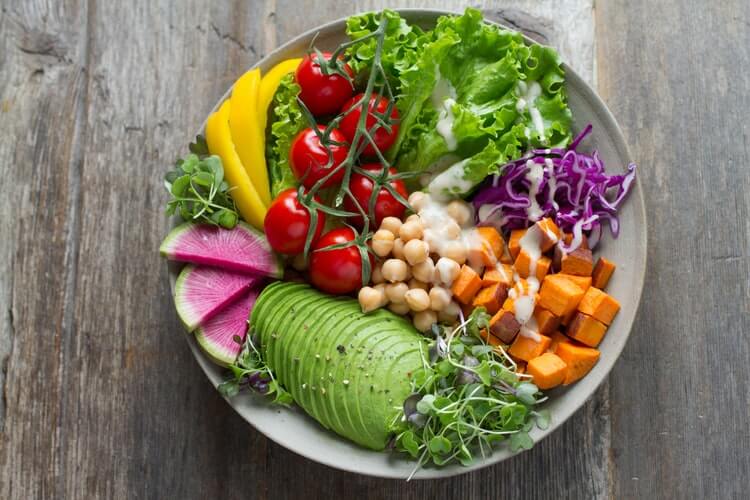Why Vegetarianism?

7 Fantastic Health Benefits of Eating Vegetarian
-
Vegetarian foods are rich in the nutrients your body needs.

You can get all the nutrients you need from a healthy, balanced vegetarian diet rich in wholefoods including fruits, vegetables, pulses, grains, nuts, and seeds. Several studies have reported that people who eat vegetarian tend to consume more fibre, antioxidants, potassium, magnesium, folate, and vitamins A, C, and E.
-
Eating vegetarian helps reduce our risk of suffering from cancer and other diseases.

A recent study suggests that eating vegetarian can help reduce our risk for disease, as plant-based foods are packed with phytochemicals – including the powerful antioxidants found in fruits and vegetables. Researchers found that vegetarians had higher concentrations of antioxidant carotenoids, a higher proportion of total omega-3 fatty acids, and lower levels of saturated fatty acids than non-vegetarians, all of which are linked to positive health outcomes. An 11-year German study involving more than 800 vegetarian men also found that their cancer rates were less than half those of the general public.
-
Vegetarian food can boost your mood.

It’s a given that following a compassionate lifestyle that avoids harming animals will give you a clearer conscience, and studies show that vegetarians may actually be happier than meat-eaters. In fact, vegetarians and vegens had better scores on depression tests and mood profiles than those who ate fish and meat.
-
Eating vegetarian can help you achieve a healthy body weight.

Vegetarian foods tend to be lower in calories than animal-derived ones, making it easier to achieve a healthy body weight without actively focusing on cutting calories. Most vegetarian foods contain significantly less saturated fat than animal “products” do, and many studies have shown that vegetarians tend to have lower body mass indexes than non-vegetarians.
-
It can help prevent type 2 diabetes.

Research has shown that people who eat vegetarian tend to have lower blood sugar levels than non-vegetarians and may reduce their risk of developing type 2 diabetes by up to 78%. Consuming plenty of healthy plant-based foods can also help mitigate the risk factors associated with developing diabetes, such as obesity.
-
Your skin may benefit, too.

Who doesn’t want a glowing complexion? Vegetarians typically eat more fruit and vegetables, which means they get more of the good stuff that’s needed for healthy skin, such as antioxidants and vitamins.
-
Eating vegetarian can reduce the pain of arthritis.

Studies have shown that a diet high in healthy vegetarian foods can help reduce the symptoms of arthritis, since consuming animal-derived foods is linked to pain-causing inflammation. Eating probiotic plant-based foods such as fermented vegetables and non-dairy yogurts with live cultures can boost the good bacteria in the large intestine, also helping to boost nutrient absorption and reduce inflammation.